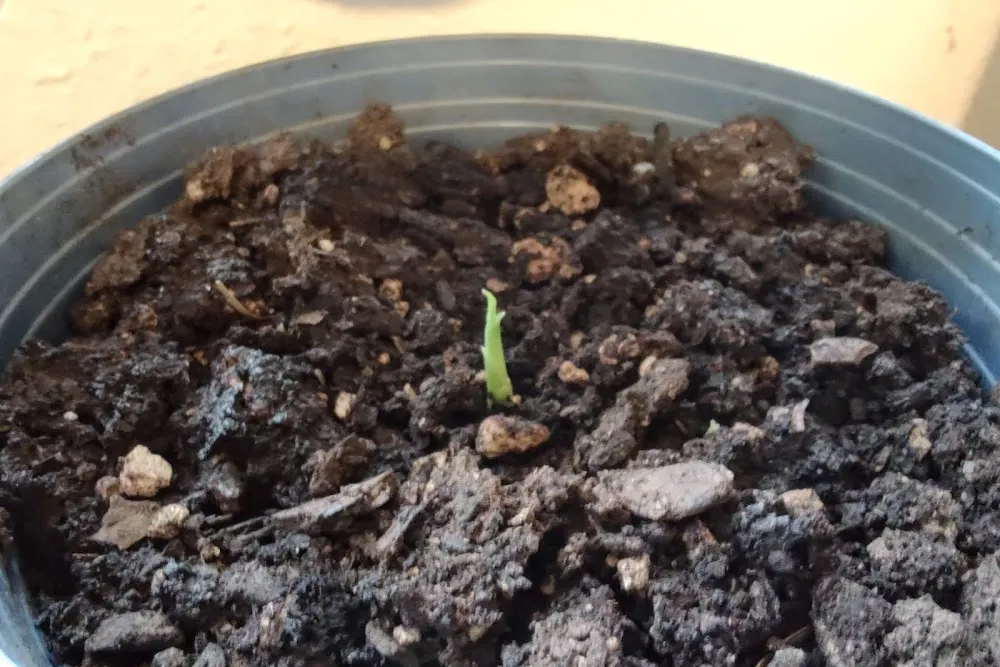
Enjoy a photo tour of my indoor plants and seedling in this exciting collection.
Rhizomes
Two plants I have decided to continue growing, but switch my strategy on, are #ginger and #turmeric.
I have had to completely start over with both with fresh rhizomes. These plants I have come to determine do not do well when planted outside for summer, and then stored for dormancy in the garage, because they will dry out or rot, and die.
From now on, I will grow them as indoor plants only, so they never have to go through the shock of temperature changes or dormancy. No more annual digging and cleaning of the rhizomes will also make my life easier.
Below, the turmeric is growing front and center. The leaves, similar to a peace lily, make my room more calm and natural, especially in winter when there are few green things alive.
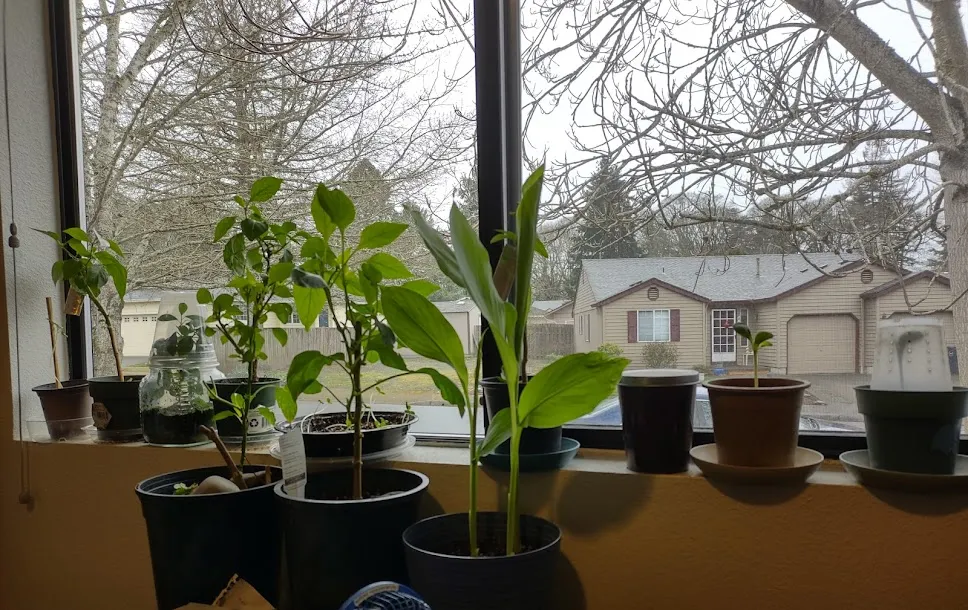
Summer Veggies
Above you can also see some of my summer starts growing in the windowsill. Pumpkin to the right.
Basil (off screen) I have found grows from seed very well inside a sealed plastic container.
Various pepper plants transplanted from last year's garden, are thriving indoors. I practice sniping them down to size to fulfill my bonsai itch. Anything tall and lanky is removed to promote thicker, bushier branching.
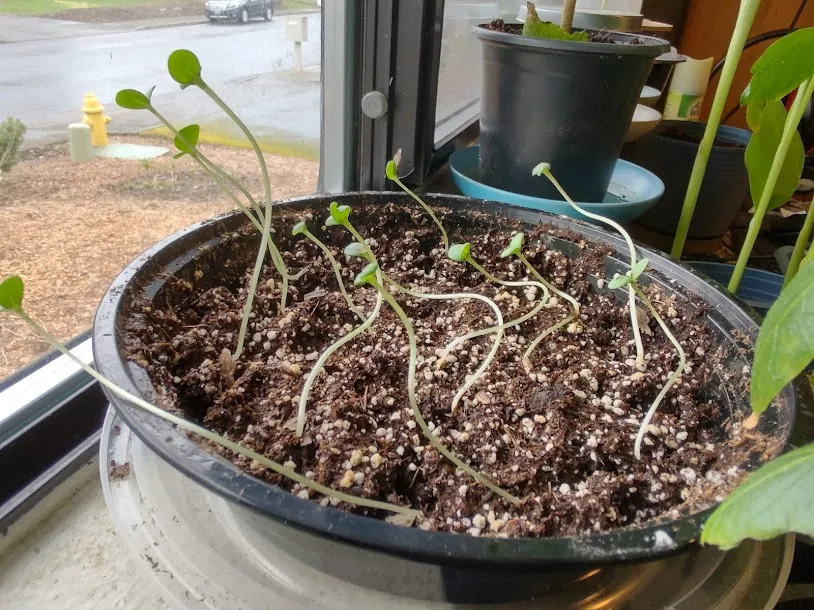
Zinnias
Sprouting #zinnia seeds was much easier than I expected. The popped open within a week of planting. These plastic containers, practically all the fast food restaurants include them with my orders, and so I find they make incredible seed starting trays with the included lid.
When I learned this year the zinnia flower provides a living space for #ladybugs, I knew I needed these in my garden. Looking forward to seeing how these do. I am already impressed with how easy they are to grow, and how cheap and fast they are to grow from seed.
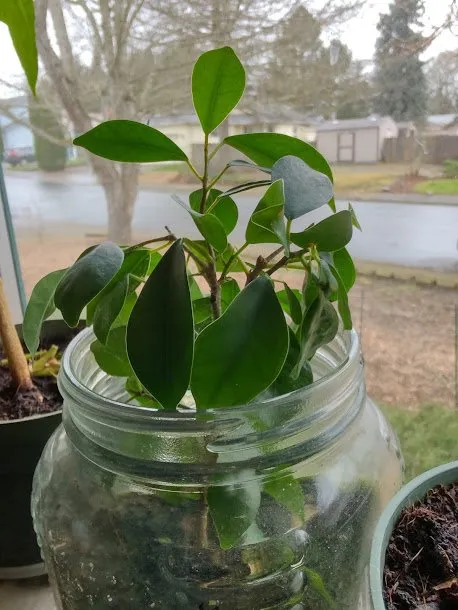
Ficus
The ficus cutting has been growing in this glass jar for a couple years now.
It basically grows in a closed system terrarium, because I keep a clear cup over the top, though pictured here without so you can see the results.
The medium is mostly sand, perlite, and peat. It rarely needs to be watered, because the closed system causes daily condensation that drips back down into the soil.
Tomatoes
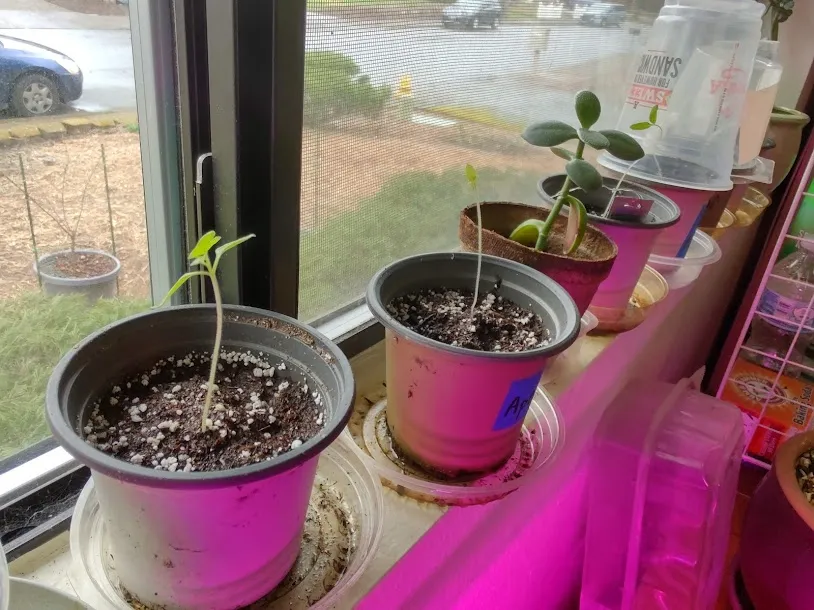
Here on the windowsill, the #tomato sprouts receive better light and air than under the grow lights inside the humidity dome.
Each cup I labeled with the name of the variety. Stems that are too weak to stand up straight, I use plastic clear cups to help hold them upright, which also helps to keep the surrounding air moisturized.
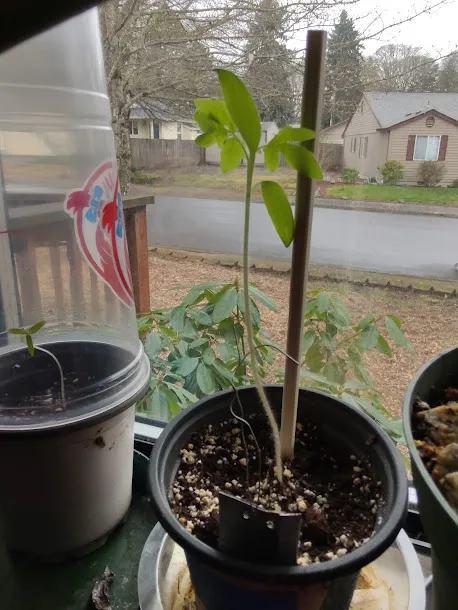
Anything I can get my hands on to start training the stems to grow upright can be helpful. On this tomato, a chopstick, a metal label and wire provides gentle guidance. Rotating the pot daily causes the leaves to grow towards the light.
New Peppers
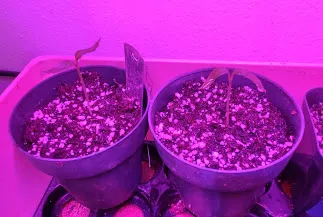
Under the grow lights, #peppers have sprouted. Sometimes they take a bit more time to sprout, up to three weeks. The humidity dome and heat mat ensure they sprout prior to mold formations taking over.
Once they sprout, peppers tend to rest for a few more weeks, relying on the seed leaves to develop more energy. Seedlings can remain inside the humidity chamber until true leaves form, at which point it will need fresh air, stronger light. As the stems thicken up they can be handled easier to be moved into larger pots.
Fun Flowers
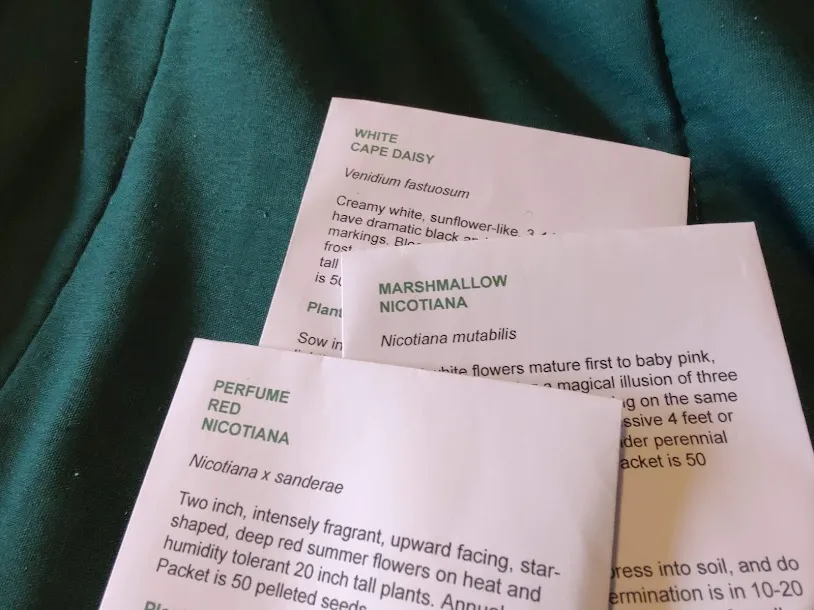
My friends know how much I enjoy growing #nicotiana.
By the way, I have been calling them #nicotania all this year, so I apologize. I suppose the way to remember how to spell it correctly, is to recall "nicoti" as the root word, as tobacco contains nicotine.
The Cape #Daisy I am most excited about. These were sold out the past two years from my seed provider, so it has been a long wait.
All of these I'll be sewing into fresh seed soil indoors today. Right now I'm allowing for the rain to moisten the soil outside, to save me some work. Seedling soil is notoriously dry and can take plenty of elbow grease to manually work the water evenly into it. When nature offers to do the work for me, I welcome it!
Goji Berry
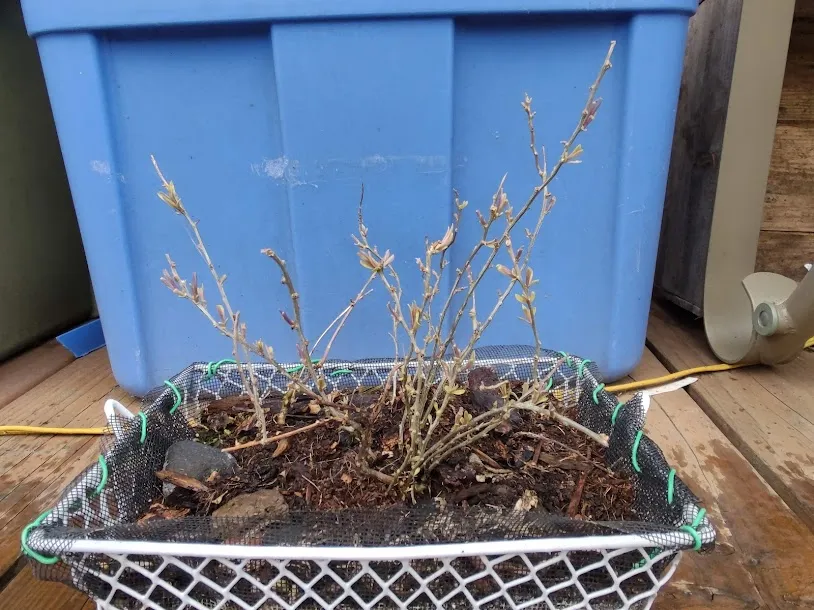
This plant, the #goji berry, I am still learning how to grow it. Grown from seed, it has survived a second winter now.
Last year it was brought indoors, and suffered badly from the dry indoor air, and an interrupted dormancy.
This year, it was kept inside a greenhouse chamber outside, and put into the garage on the freezing days.
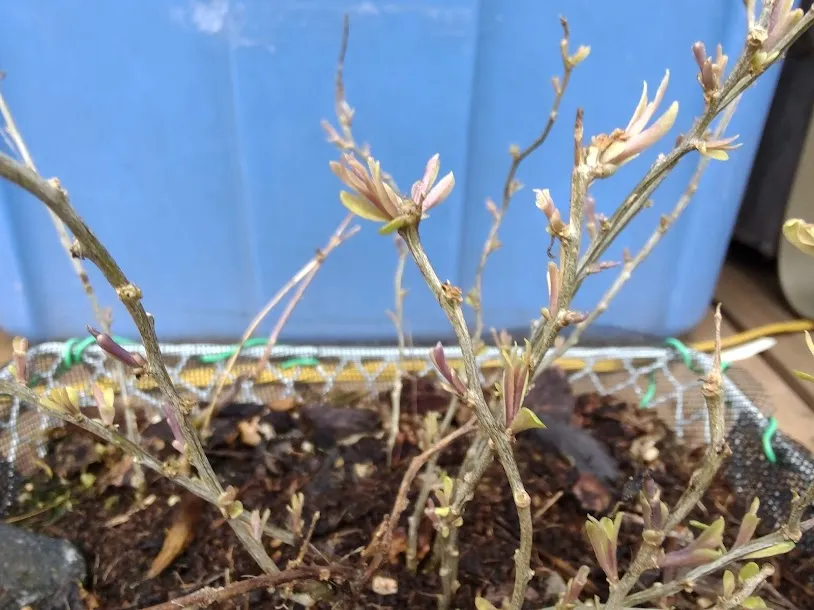
The pale leaves of the goji berry are slightly pink.
Pale leaves often occur when a plant is left in the garage for too many days, and it is trying to force growth with limited light.
Any time I see reddish leaves on a plant that is normally green, it tells me something...
Plants often will change color to red when the light conditions have changed from trace light or darkness to full sun. Often I notice this on tomato plants too when they are hardening off, the leaves can become purple.
There is nothing wrong with the plant when new leaves change color, and the sun does not harm it. Eventually the leaves will green up and become healthier.
Poppies
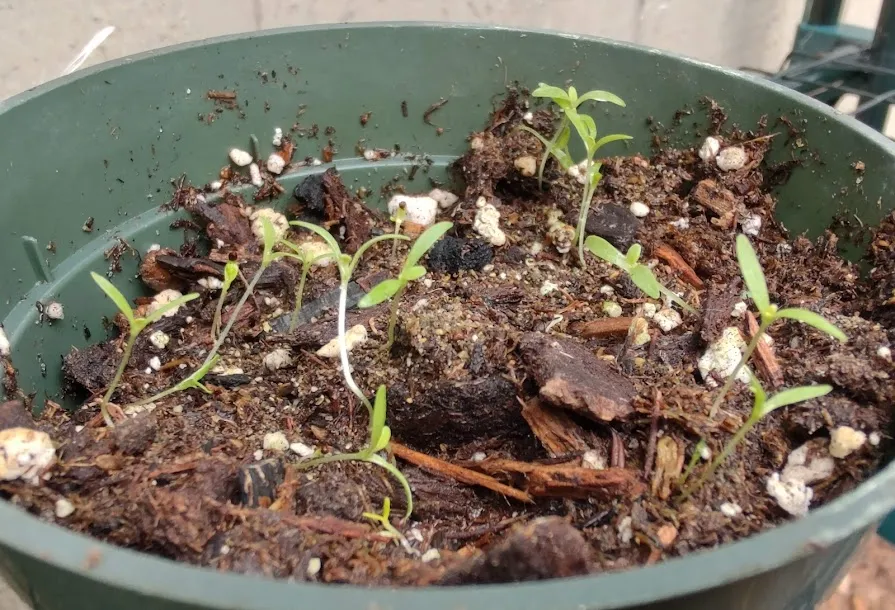
One of the plants I am notoriously bad at growing from seed. Is this the year I found the secret?
The trend this year everyone is try on youtube is to scatter the seeds in winter in the snow. Yes, I have tried this too, but honestly I don't think it will work in my climate or soil.
Above these #poppy seeds had sprouted about a month ago, and have remained small. Only now are they starting to push out true leaves from the center.
My secret? Plant them in winter in cups, and put them into a greenhouse. If the seedlings look very fragile and it's going to freeze, bring them into the cool garage, and make sure the surface sprouts and soil does not dry completely. On warmer days, bring them outside to an area to receive full sun.
Spritz with water if necessary. Seedling that get knocked over might not survive.
Carrots
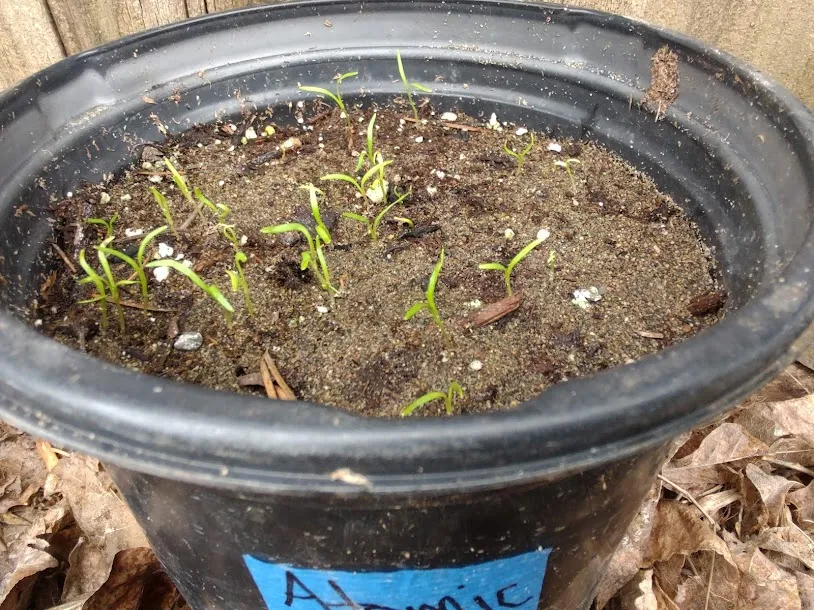
The #carrots have been treated similarly to the poppy seeds. Since these seeds can take many weeks to sprout, it is easy to give up and feel like you have to start over.
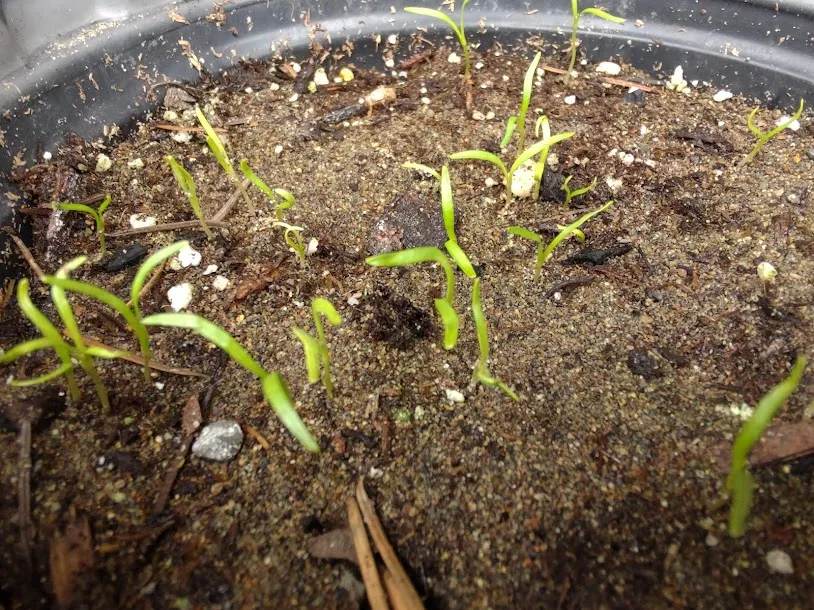
For difficult seeds that take a long time to sprout, I use a 1/4 inch layer of sand on top to cover the seeds.
Sand changes color when it dries out, and so it is easy to monitor when it needs water. Sand will keep the seeds wet without causing rot, and provides an easy medium for weak roots to tunnel through.
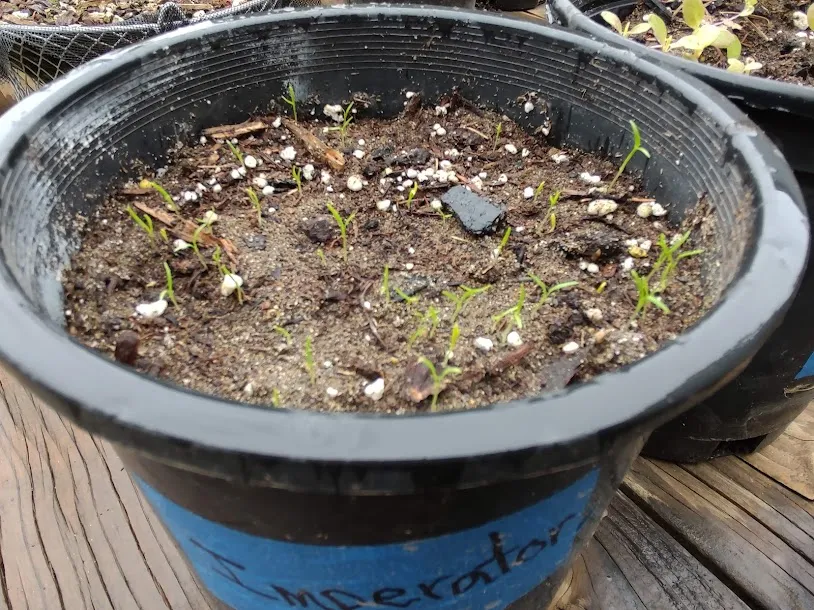
Not all carrot varieties grow the same, believe it or not. I think this morsel of truth is so important, and yet I take it for granted every year.
Atomic Red is one variety I found grows best when I keep the pot covered with a milk carton, as a mini greenhouse.
Imperator is another variety. It enjoyed the protection of being kept inside a greenhouse.
Red Core Chantenay I have been growing with a milk carton cover over it, but many of the seedling failed, so I had to reseed it. I think this one probably prefers a later, warmer season.
This year I am not doing any direct sowing of carrots into raised beds. It is too hard to bend over and sew the tiny seeds, and then watch as the cold, the birds, or the insects chew them up the moment they sprout.
Lettuce
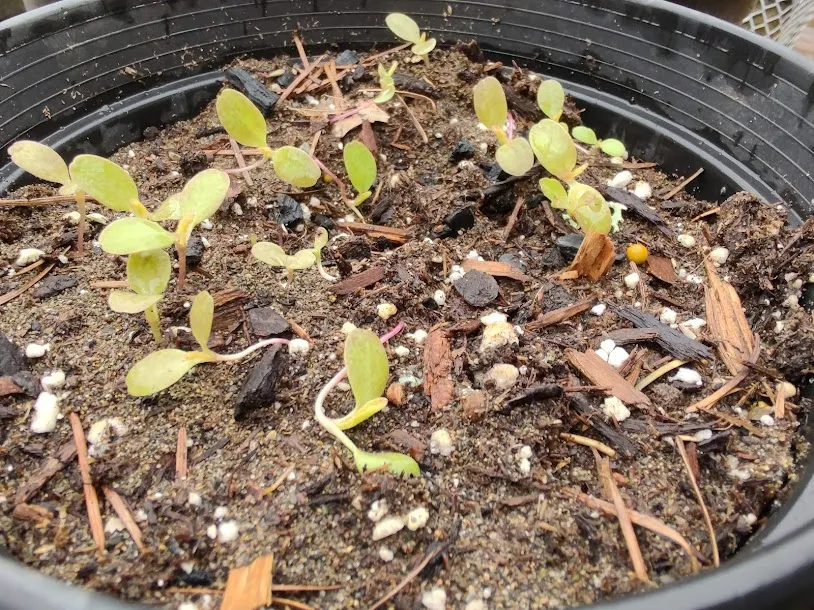
The #lettuce I am growing this year is called Prizehead, and so far I am optimistic about the results.
This is another one I have discovered works well when grown in a pot under a mini greenhouse. I started another batch last week that is off to a slower start because of the freezing temperatures we had, but now it seems to be responding better because I can offer it full sun.
My hope is that I can separate these from the other seedling after they grow multiple true leaves, and they'll be sturdier to handle. I prefer lettuce to grow under my taller plants in the raise beds and rows, but I have not had much success growing lettuce in those locations in the past.
Seed Planner
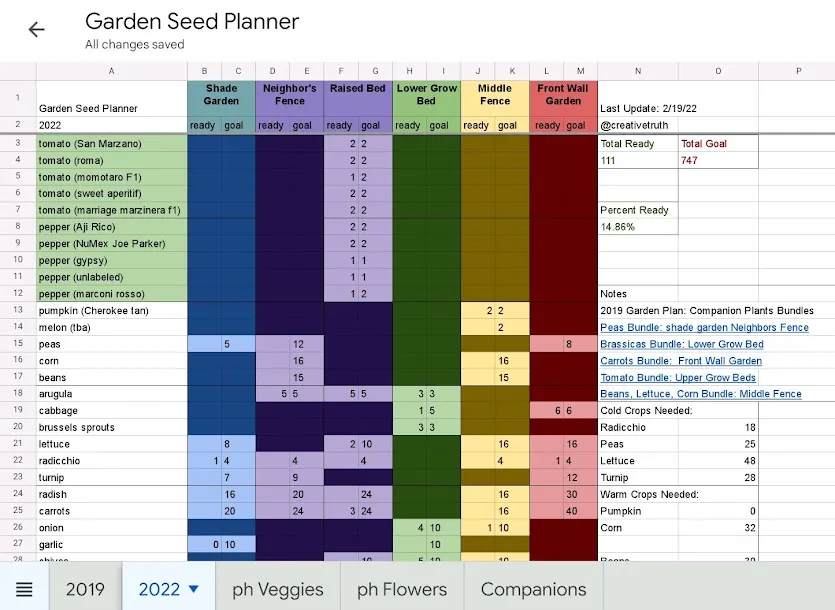
Lastly, here is my spreadsheet for attaining my often ambitious gardening goals.
Any warm season summer crops that have to be started months earlier indoors, I highlight in green. Oops, I need to highlight pumpkin in green too!
Here I mark out how many plants I want to have in each area of my garden, in the goal column. For every plant that is growing as planned for the intended grow bed location, I list it in the ready column.
The totals are counted on the right side, and tells me how close I am to 100% completion.
Below the right side, I also track some specific crops that I want to track how many more I need to grow to meet my goals.
Conclusion
Thank you for checking out my progress. I hope to share more photos of my garden with you here on Hive.
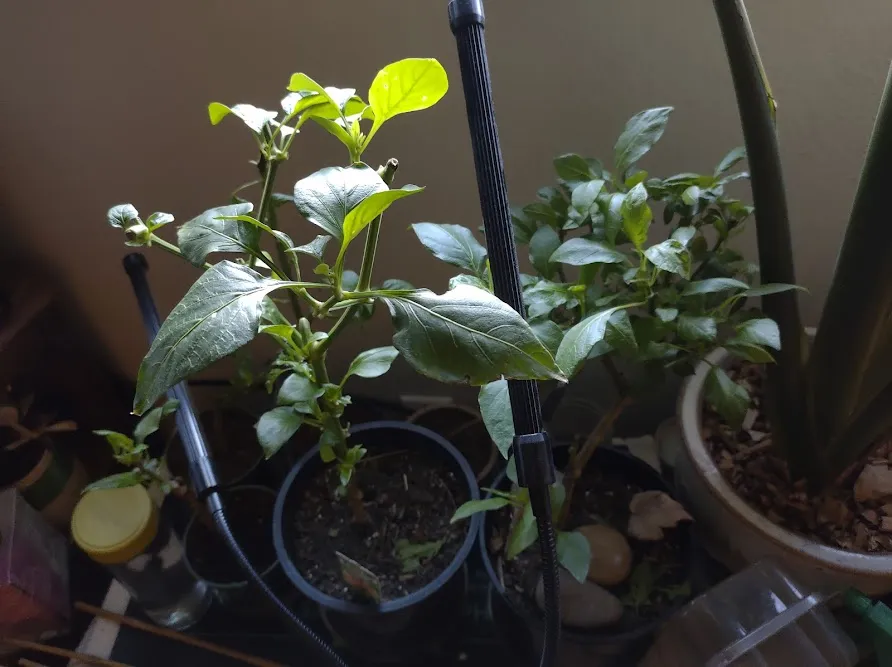
Post Beneficiaries:
- 1% @cryptopie
This is my way of thanking each of you for your friendship and support. By sharing my talents on Hive, I can also share to help with your needs.
Let my success also grant you some happiness too.

